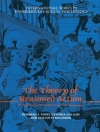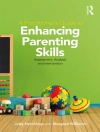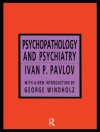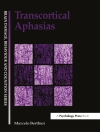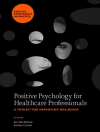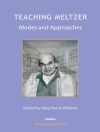Interweaves the perspectives of school counseling educators with those of practitioners in the trenches
This foundational text for school counselors-in-training is the only book to have chapters coauthored by counselor educators and practicing school counselors. It delivers easily accessible information based on a scholarly foundation of best practice recommendations from the field and research-based, data-driven content, including school counseling interventions, issues for professional practice, and a toolkit of helpful resources. The book is distinguished by its in-depth examination of the day-to-day role of the school counselor in elementary, middle, and high school settings—often a different reality than the recommended practice by the ASCA National Model—along with a commitment to cultural competency and social justice throughout.
Providing a platform for the contributions of historically underrepresented voices, the text links theory and practice to provide readers with tangible and concrete strategies to implement. It covers the nuts and bolts of school counseling interventions including individual, group, classroom guidance, and crisis intervention. Each chapter begins with a K-12 student testimony to highlight the impact of school counseling interventions and to promote a better understanding of student needs. This strengths-based text also examines a variety of contemporary topics that strongly affect students, including an entire chapter on LGBTQIA+ issues and coverage of Anti-Racism policies and Virtual Counseling.
Additional features include Voices from the Field and Practical Applications that demonstrate real scenarios in practice. Instructor’s will also have access to the Instructor’s Manual, Test Bank, and chapter-based Power Point presentations.
Key Features:
- Merges the perspectives of counselor educators with the frontline experiences of practicing school counselors
- Examines in depth the day-to-day responsibilities of the school counselor
- Grounded in a scholarly foundation of research-based best practice recommendations
- Delivers student testimony about how school counseling has affected them
- Includes illustrative case studies and challenging discussion questions
- Details school counseling interventions and other practical applications
- Embraces a commitment to cultural competency and social justice throughout
Inhaltsverzeichnis
List of Contributors
List of Voices from the Field Participants
Foreword
Preface
Acknowledgments
PART 1. Introduction and Foundation of Professional School Counseling
Chapter 1. School Counselors as Anti-Racist and Social Justice Advocates
Chapter 2. Strength-Based Practice for School Counselors
Chapter 3. History of the Profession and Future Trends
PART 2. Differentiating Aspirational from Actuality: The Impact of the American School Counselor Association on the School Counseling Profession
Chapter 4. The ASCA National Model
Chapter 5. Mindsets and Behaviors for Students and Professional School Counselors
Chapter 6. Finding Meaning in ASCA-Identified Inappropriate Duties
Chapter 7. Data-Driven Services and School Counseling Efficacy Assessment
PART 3. Professional School Counseling Interventions
Chapter 8. Individual Counseling for School Counselors
Chapter 9. Group Counseling for School Counselors
Chapter 10. Classroom Guidance for School Counselors
Chapter 11. Crisis Intervention for School Counselors
PART 4. School Counselors as Leaders for Student Success
Chapter 12. Advocacy for Safer Schools for LGBTQIA+ Students
Chapter 13. Engaging Students with Individualized Education Programs (IEPs) and 504s
Chapter 14. Home Impact on Students
Chapter 15. Mandatory Reporting: Recognizing Abuse and Neglect
PART 5. Issues for Collaborative Professional Practice
Chapter 16. School Counselors and Community and Family Engagement
Chapter 17. School Counseling: Collaborating with School Staff
Chapter 18. Building a Comprehensive School Counseling Program (CSCP)
Chapter 19. Online Counseling Service Delivery for School Counselors
Appendix: School Counseling Resources
Index
Über den Autor
Mary Amanda Graham, Ph D, NCC, LMHCA, ESA, has been in the field of counselor education for 15 years. Her career has spanned two universities. She was at Indiana University of Pennsylvania and currently at Seattle University. She was promoted to full professor at Seattle University where she has been a faculty member for 14 years. Dr. Graham is currently the program director of the School Counseling Program in the College of Education at Seattle University. She is a certified school counselor in Washington and has practiced at the K–12 level, as well as internationally. Dr. Graham is also a practicing licensed mental health professional in Washington State with a focus on children and adolescents. Dr. Graham is passionate about school counseling, diversity equity, and inclusion. She is focused on provided practical applications for school counselors in the field as they emerge as systemic change agents.


